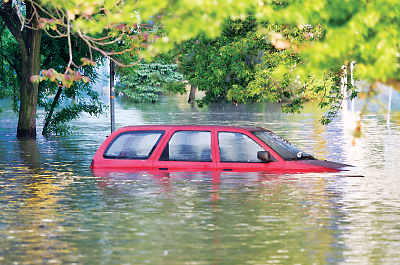The Division of Diversity and Health Equity will sponsor an APA on Tour event at this year’s IPS: The Mental Health Services Conference, highlighting the impact of climate change on mental health.
“Climate change is no longer a theory,” said event chair Robert Ursano, M.D. “Changes in climate are expected to create more variability on the weather and more potential weather-related disasters, which can result in alterations of levels of distress, changes in health-risk behaviors such as smoking and medication adherence, and worsening of psychiatric illnesses such as posttraumatic stress disorder and depression.”
Ursano is chair of the Department of Psychiatry at the Uniformed Services University of the Health Sciences in Bethesda, Maryland, and chair of APA’s Committee on Psychiatric Dimensions of Disasters.
Because of such consequences, Ursano said that understanding disaster psychiatry—the prevention and treatment of disaster-related psychiatric illness and distress—is of utmost importance.
The event, to be held Friday, October 7, will feature a panel of speakers who will give various perspectives on the ramifications of atmospheric changes on mental health in addition to providing preventive measures and interventions that may potentially thwart negative outcomes.
Panelists will include Joshua Morganstein, M.D., assistant chair of psychiatry and a commander at the U.S. Public Health Service, who will give a keynote address on evidence-based impacts of climate change on mental health, and Elizabeth Haase, M.D., an associate professor of psychiatry at the University of Nevada, who will lead a discussion on mental health risks linked to adverse environmental changes such as rising levels of carbon dioxide in the atmosphere and air pollution that can lead to increased rates for cognitive damage among an exposed population.
Haase will also discuss strategic plans to help prevent and remedy damage to the environment—and its subsequent outcomes—through environmental leadership among youth, environmental engagement though performance arts, faith-based environmental action movements, and research-based communication skills that will help Americans best understand and adapt to new value systems.
“I hope that people will be awed by the many programs already under way to build emotional and social resilience to the psychological impact of environmental and climate change,” Haase told Psychiatric News.
Robin Cooper, M.D., an assistant professor of psychiatry at the University of California, San Francisco, will talk about climate change and the mental health of disenfranchised communities, focusing on the aftermath of Hurricane Katrina and Superstorm Sandy.
“Climate change will likely reinforce and amplify current socioeconomic disparities, leaving low-income, minority, and politically marginalized groups with fewer economic opportunities and more environmental and health burdens,” Cooper told Psychiatric News. She explained that disenfranchised communities have the least resources to buffer themselves from climate-related repercussions and are least able to recover once affected. “Issues of equity must be a major concern and focus of the impact of climate change.”
Cooper told Psychiatric News that she hopes that all attendees will come to understand the significant association between climate change and mental health. She added that psychiatrists must use professional organizations to advocate for education, research, and effective public policy.
“To continue to remain silent on this issue is to avoid one of the most significant issues of our time and to fail to protect our vulnerable patients,” Cooper concluded. ■

